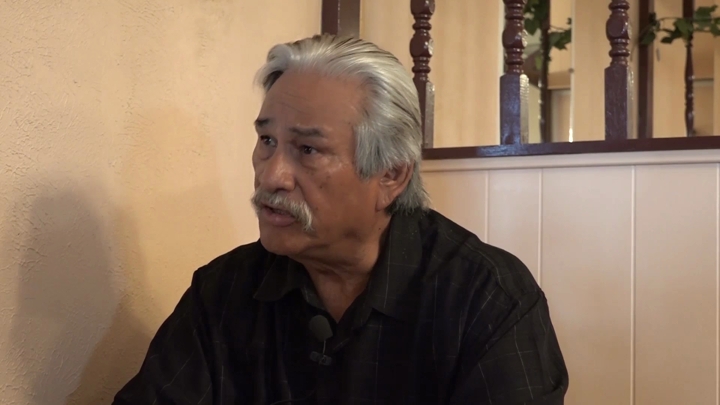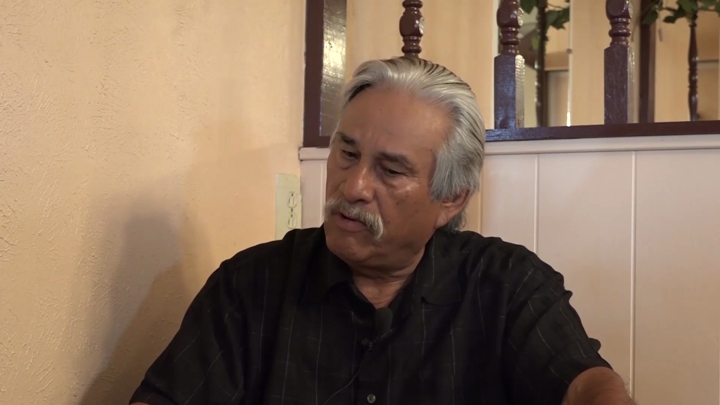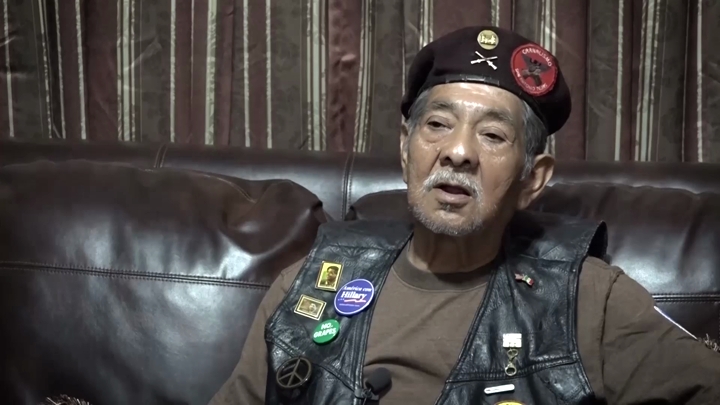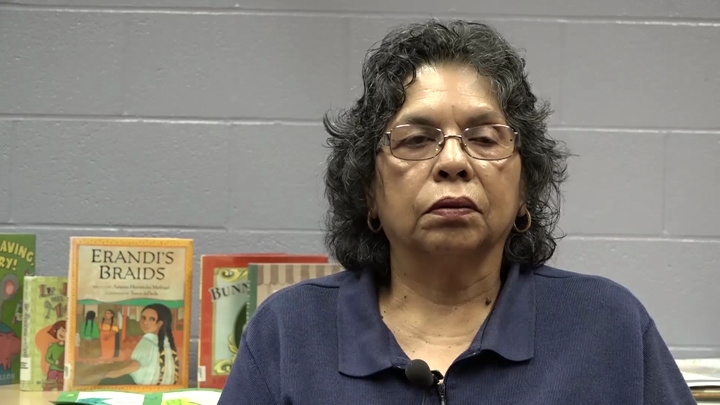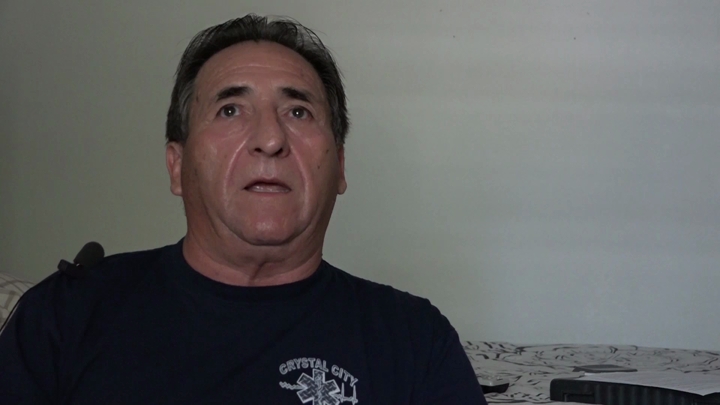Montejano / The Brown Berets
sign up or sign in to add/edit transcript
Montejano: There was Delores, she was the wife of one of the Berets. There was Virginia, and at that time she was Jerry- my compadre’s- wife, ex-wife now. Basically, it was Blanca came along with Victor. Victor brought her. And that was about it. It was a handful of women. Arionus: Why do you think it was so difficult to recruit Chicanas? Montejano: First of all, I do not think they were ready to be soldadas. Number one, I mean pick up a rifle. We would have been labeled terrorists today if we would actually have carried out our plans the way we had kind of set them up. I know we were under the FBI radar. We were under the police department’s radar for sure. I knew that that was part of it. And the other part was that we still had to struggle with this “yo hombre, tú la mujere. You are going to do what I say.” And that was even, that was hard for me. You can ask my big brother about that because he says- my mother says- she raised all these men but the aggressive one in that family was me. I was the pelionera. I said I had to grow up competing with you guys so of course I have to go the extra distance. I was ready and very committed to the changes that were supposed to come about by any means necessary. We marchabamos. We protested. I never got arrested for protesting, though. Just seen by la gracia de dios. That we never did. One of the positive things that I think came out of that was – ah his name is Ralphie and he was running for sheriff but I cannot remember his last name- Ralph Lopez. He was a sergeant with the police department. He knew Juan and he started coming around the headquarters and we were all anti-police, man. Our main thing was the police were beating up on these chicanos for nothing. Just, beating up. Killing them. Shooting them. Harassing them. You know, the young people- because that was one of the things that we did- we use to tail the police when they were on their beats. Not too many police like that. But we did it. Anyway, they started coming around [mumble ?] . I do not know, either way, that was the first steps into creating the community relations office with the police department. Prior to that I do not think they had one. So in a big way they were instrumental. The Brown Berets were also instrumental in creating the so-called “truce” or war council- they would call them. We would sit down and have these “peace talks” with these different gangs. I do not remember sitting in in any of those. Were they successful? I cannot tell you. Because I saw a lot of conflict within the Berets different barrios. So, they had that kind of uneasy truce that was very precarious truce. Arionus: Can you tell me about the differences between the south side and the west side Brown Berets? Montejano: [Laughs] You want me to be honest, huh? When Victor and his brother Frank- and I forget who else- they approached Juan and the Brown Berets we were having a meeting. I’ll never forget, they drove up and Juan told us, “ These guys are going to come over and talk to us. They are from the south side.” There is no love lost between the west side and the south side, you know, it was territorial stuff. They are coming in as a Chicano three. They were just them and whoever else was in their organization wanting to create a south side chapter of the Brown Berets. Something about Victor- I mean we are en paz- but at that time something about that just made me feel- NO! No! No! And I voted no and stuck to my guns. I was like NO you are going to live to regret that. Sure enough I think that was the beginning of the end of the west side Berets. I cannot exactly tell you all the things that happen because they were out there doing things that should not have been done.
| Interview | Interview with Diana Montejano |
| Subjects | Family › Childhood Experiences |
| Housing › Neighborhoods | |
| Police and Law Enforcement | |
| Police and Law Enforcement › Police Brutality | |
| Police and Law Enforcement › Latino/a Employment in Law Enforcement | |
| Gender and Sexuality | |
| Chicano Power › Brown Berets | |
| Chicano Power › Ideology of Chicano Power | |
| Geography › Barrios | |
| Crime › Gang violence | |
| Tags | sign up or sign in to add/edit tags |
| Interview date | 2016-06-29 |
| Interview source | CRBB Summer 2016 |
| Interviewees | Montejano, Diana |
| Interviewers | Arionus, Steve |
| Sinta, Vinicio | |
| Locations | San Antonio, TX |
| Duration | 00:06:58 |
| Citation | "The Brown Berets ," from Diana Montejano oral history interview with Steve Arionus and Vinicio Sinta, June 29, 2016, San Antonio, Civil Rights in Black and Brown Interview Database, https://crbb.tcu.edu/clips/4219/the-brown-berets, accessed February 25, 2026 |


